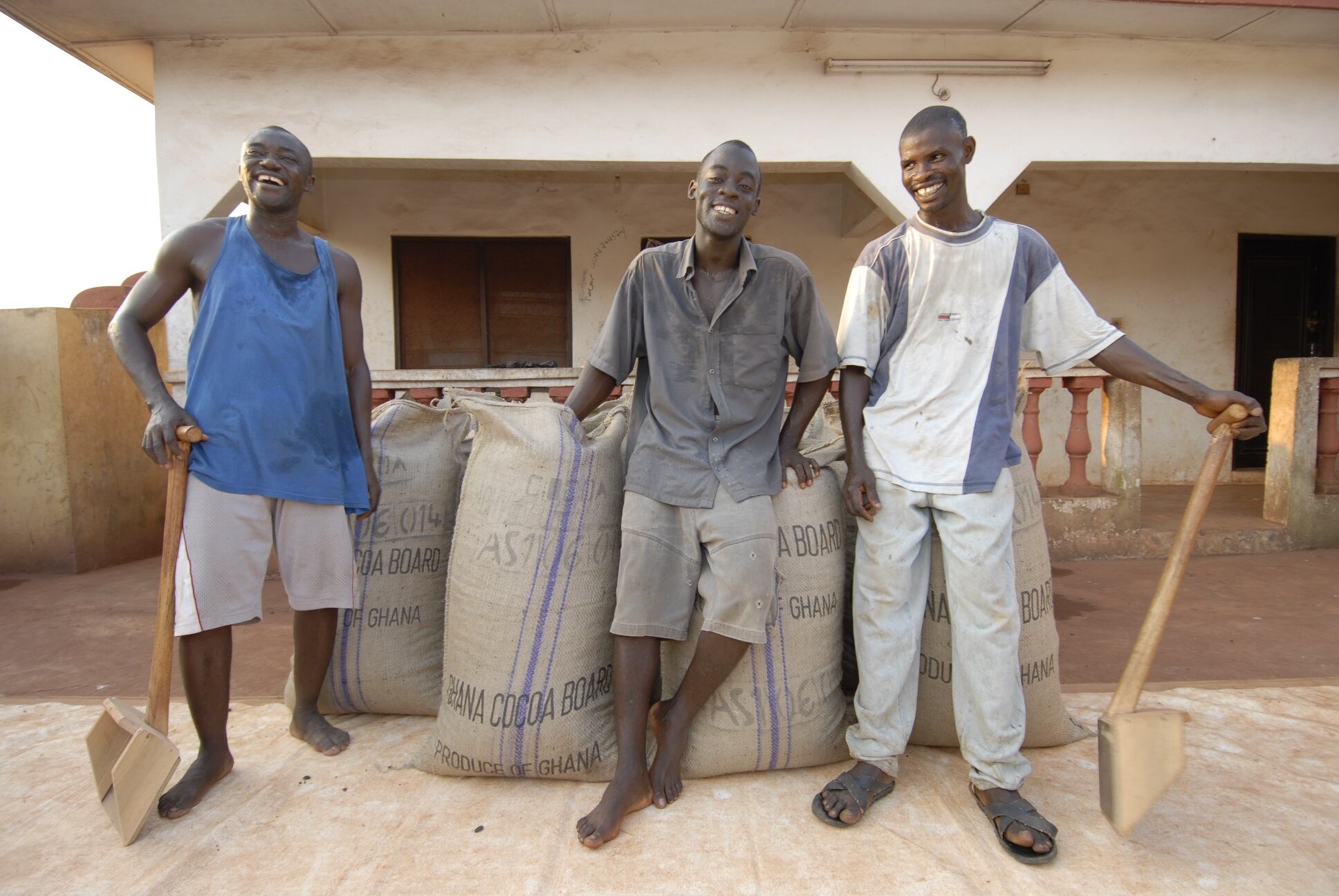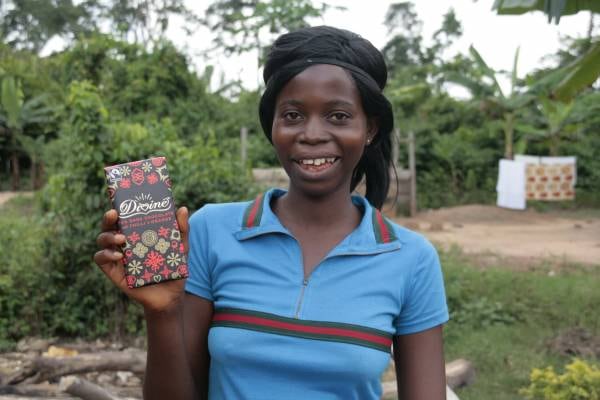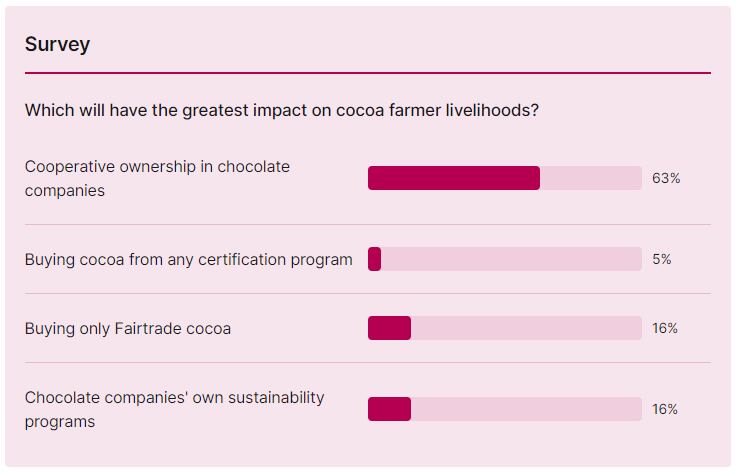UK Fairtrade-certified firm Divine Chocolate is 45% owned by Kuapa Kokoo, a 80,000 strong cocoa farming cooperative in Ghana that accounts for 5% of the country’s supply.
The cooperative gets a share of Divine’s profits through dividends, which it spends as it choses on farmer bonuses, training or improvement to local infrastructure.
Divine also devotes 2% of its turnover to 'producer support and development' projects, which Kuapa Kokoo spends on farmer education.
Incentive to grow cocoa
Sophi Tranchell, managing director at Divine Chocolate, said that the business model could be used by large chocolate companies to improve farmer incomes while boosting the cocoa supply.
“Clearly if farmers got shares in the company it would incentivize them to grow cocoa,” she said. “I can’t imagine it would happen, but it would be interesting.”
She said the model would give big companies long-term relationships with organized farmers making it easier for company sustainability programs to improve quality and boost yields.
Traceability key
Companies would first need to trace where their cocoa was coming from and identify the largest cooperatives.
Divine Chocolate does not process cocoa, but buys chocolate under contract. Tranchell said the company’s supply chain was fully traceable and its supplier was contracted to provide only cocoa grown by the Kuapa Kokoo cooperative in Ghana.
Profitable model?

A report by City University London’s Cass Business School found that employee owned business had greater growth and a more positive media-image, which it said was particularly true for manufacturing and processing firms.
But is Divine Chocolate still growing its profits under this business model?
The company’s 12 month sales Sept 2013 grew 4.5% to £7.87m ($13.5m). Divine’s after tax profit for fiscal 2013 has yet to be audited, but 9-month net profit in 2013 was already 62% greater than the full-year 2012 at £44,000 ($75,000).
Divine Chocolate also paid a share dividend of £57,000 ($98,000) to the Kuapa Kokoo cooperative.
But profit margins are fairly low. Divine posted a 2.6% operating profit margin in the first nine-months of 2013. By comparison Nestlé’s confectionery division recorded operating profit margins of 15.9% in full-year fiscal 2013.
“I think we’ve come to an interesting place in the maximizing profit business model – it’s not sustainable [to sustain the future of cocoa growing],” said Tranchell.
Is Fairtrade the only way?
The Divine chief also encouraged the industry to buy Fairtrade cocoa. “They can commit to Fairtrade. It’s the only scheme that gives farmers more money. I’m not sure the other certification schemes deliver money on the ground for farmers.”
Large companies such as Hershey, Mars and Ferrero have committed to buying 100% certified cocoa, but are using a mix of certificates.
Fairtrade International has a minimum price of $2,000 per metric ton (MT) ($2,300 per MT for organic cocoa beans) and the Fairtrade premium is consistently $200 per MT even if the New York Exchange price exceeds $2,000 per MT.
This differs to other certification programs that set no minimum prices or premiums and instead train farmers to negotiate a fair price.
A recent report from Fairtrade said that farmers spent 36% of their premiums on increasing productivity and cocoa quality.

Certificates chosen on brand resonance
Andy Harner, global cocoa vice president at Mars Chocolate, said that his company viewed certification as one tool to reach farmers at scale.
"In terms of the breakdown among the different certifies - really there's just a goal to be equitable,” he said. "We have some brands that are lined up with specific certifications - we've done that if it resonates with the brand and with the consumers of where those brands are sold.”
Mars has committed to buying 100,000 MT of Rainforest Alliance cocoa by 2020 and 100,000 MT of UTZ Certified. More recently it committed to buying Fairtrade cocoa, but at lower volumes than the other main certificates.
Is certification the panacea?
Executive director of the International Cocoa Organization (ICCO) Jean-Marc Anga questioned the effectiveness of certification.
“Certification while being a laudable concept is not really working for the benefit of the farmer. Certification in my view is on a par with the word sustainable because it can encompass just about anything we want it to encompass.”
He said that certification was sold to the world a panacea concept, but farmers were often training to meet certification requirements and then struggling to find a buyer or forced to sell at the regular cocoa price.
“It is clear that the economic dimension of certification is not obvious. It is not measurable in the farmers pockets.”

